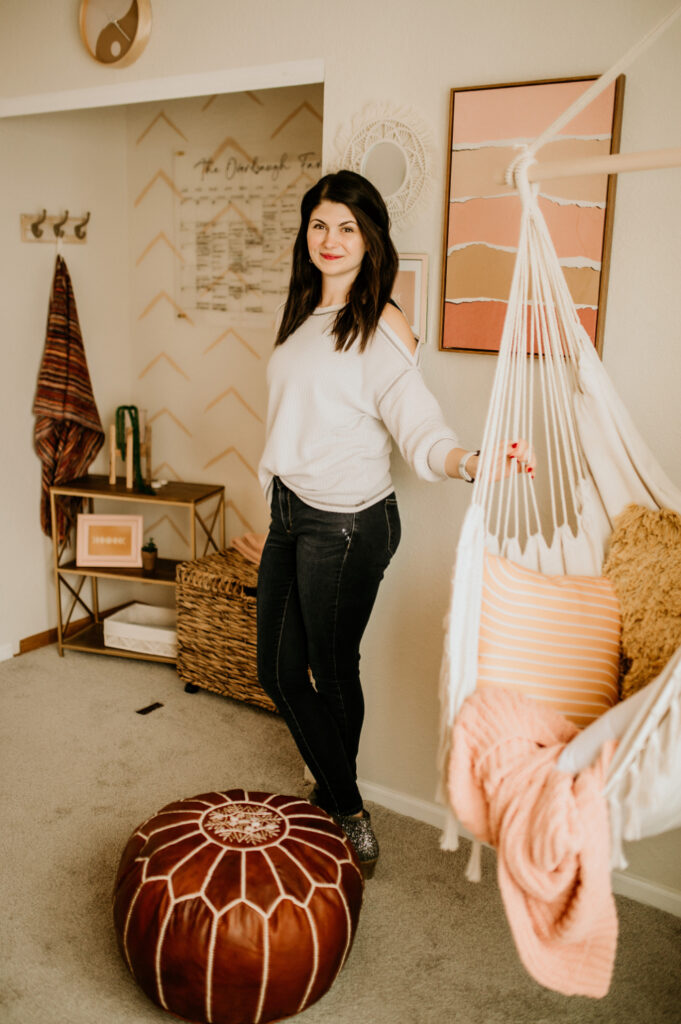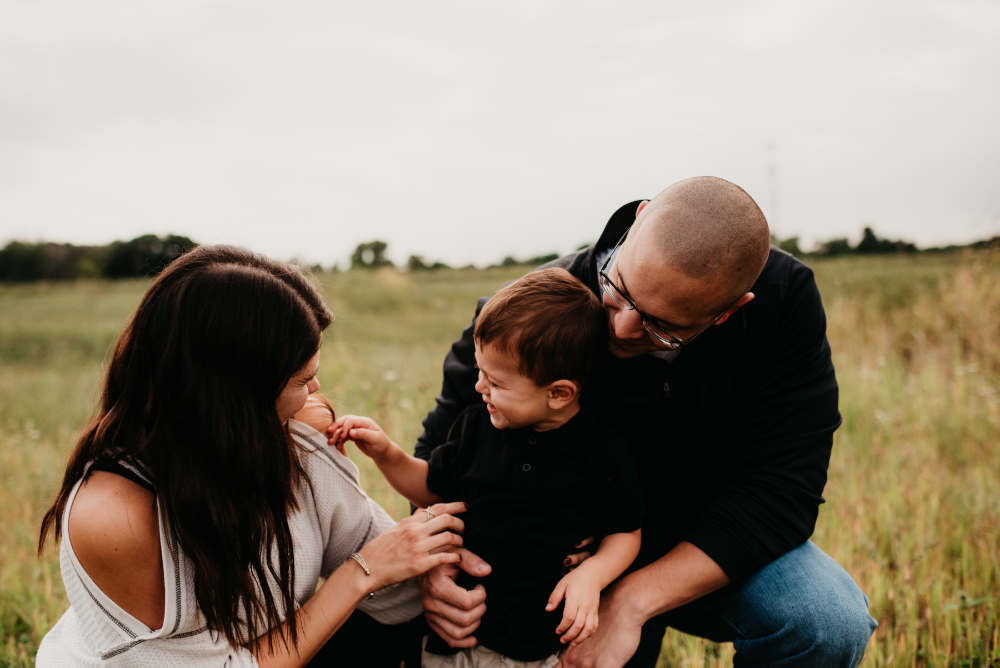Motherhood and Mental Health: Why We Need to Talk About the Hard Stuff
April 8, 2025
Motherhood is full of contrast. It’s beautiful, overwhelming, meaningful, exhausting, and everything in between. But what we don’t talk about enough—what often gets buried under the laundry, the to-do lists, and the smiles for photos—is mental health.
As a therapist who works with moms navigating OCD, anxiety, and the pressures of daily life (and as a mom myself), I know how isolating it can feel. And I also know this: you are not alone. The connection between motherhood and mental health is real, and it deserves more space in our conversations.
Let’s talk about what’s actually happening behind closed doors—because healing starts with honesty.
The Reality of Motherhood and Mental Health
There’s this idea that once a baby arrives, joy just takes over. But for many moms, what sets in is something completely different—overwhelm, anxiety, intrusive thoughts, mood swings, guilt, and exhaustion that doesn’t just go away with sleep.
Motherhood and mental health struggles aren’t rare. They’re common. But because they don’t always look like the extreme cases we hear about, they often go unnoticed or dismissed.
You might be functioning. You might be showing up every day, making meals, getting through the routine. But inside, you’re drowning. (I’ve seen it so many times, and I’ve felt it myself.)
This is exactly why we need to talk about motherhood and mental health—not just postpartum depression, but also anxiety, OCD, rage, burnout, and emotional disconnection.

How Society Contributes to Mom Guilt and Silence
Let’s be honest—moms are under pressure from every direction. There’s this unspoken expectation to be selfless, calm, grateful, and joyful all the time. But the reality? That’s not sustainable. And it’s not healthy.
From social media to unsolicited advice, it’s easy to feel like you’re doing it all wrong. And when you start to struggle, you might hear messages like:
- “Other moms have it harder.”
- “You should be grateful.”
- “It’s just part of being a mom.”
- “This is what you signed up for.”
Those messages are harmful. They create guilt. They keep women quiet. They push moms into shame instead of toward support. And they ignore the fact that being overwhelmed, anxious, or emotionally depleted doesn’t make you a bad mom—it makes you human.
Speaking of social media—ever notice how you feel more anxious after scrolling? You’re not imagining it. Social media can quietly fuel anxiety, comparison, and self-doubt. In this post, I break down why that happens—and how to take your peace back.
Why Talking About It Helps
Silence keeps suffering in place. But when we talk openly about motherhood and mental health, we normalize what so many moms are already going through.
When you speak up, you:
- Remind yourself that your feelings are valid.
- Give other moms permission to be honest too.
- Start breaking the cycle of shame and isolation.
And here’s the truth I’ve seen over and over: naming your experience is often the first step toward healing. You don’t have to have all the answers. You just have to start being honest—first with yourself, then with others.
(If no one’s ever told you this before: it’s okay to not love every second. It’s okay to feel lost sometimes. And you deserve support just as much as anyone else.)
OCD in motherhood is more common than people think—and often goes unnoticed. Intrusive thoughts, compulsive checking, constant reassurance-seeking—if this sounds familiar, you’re not the only one. I’ve written about my experience and what I see in my work with moms facing OCD. Read on here.
Signs You Might Be Struggling and Need Support
So how do you know when it’s time to get help? Here are a few common signs I see that often get brushed off as “just being tired” or “just being a mom”:
- Constant feelings of irritability or anger
- Racing thoughts or obsessive worry
- Feeling detached from your baby or your own emotions
- Avoiding certain tasks out of fear or anxiety
- Panic attacks or physical symptoms of stress
- Intrusive thoughts that feel disturbing or out of character
- Crying often or feeling numb and disconnected
- Trouble sleeping even when you’re exhausted
(And just to be clear—intrusive thoughts do not mean you’re broken or dangerous. They are incredibly common, especially in the postpartum period. But they do deserve to be talked about and understood.)
If you’re experiencing any of these symptoms, please know this: it’s not your fault. And there is help.
Ways to Prioritize Mental Health as a Mom
When it comes to motherhood and mental health, you don’t need a full day off or a spa retreat to care for yourself. (Though if you can get one, take it!) Sometimes, it’s about small, consistent steps that help you reconnect with yourself.
Here are a few simple, realistic ways to start:
- Start checking in with yourself daily. Even just asking, “What do I need right now?” can shift your mindset.
- Set boundaries without guilt. Your time and energy are valuable.
- Practice saying no—to extra obligations, overcommitting, or things that drain you.
- Lean on support systems. Whether it’s therapy, friends, or a group chat with other moms—connection matters.
- Make space for movement. Even 10 minutes of walking can change your mental state.
- Challenge the negative self-talk. Start noticing those thoughts that say you’re failing—and push back with kindness.
(Motherhood isn’t about doing everything. It’s about showing up, even when it’s messy, and finding ways to take care of yourself in the process.)
You’re not imagining it—the mental and emotional load of motherhood is real, and it’s heavy. If you feel like you’re juggling 1,000 things no one else even sees, I’ve written a post just for you.

Handling Scary Thoughts in Motherhood
If you’ve been dealing with intrusive thoughts, panic, or fear in parenting—you’re not alone. My Handling Scary Thoughts in Motherhood Masterclass is here to help you understand what’s actually happening and how to take your power back.
In just over two hours, you’ll get clear, practical guidance on postpartum OCD, anxiety, and how to tell the difference between scary thoughts and something more serious—like psychosis. I’ll also walk you through simple, actionable strategies to feel more present with your kids instead of stuck in your head.
You’ll learn how to recognize OCD patterns, advocate for yourself with professionals, and start shifting out of shame and into self-trust. This class is a must-have in your recovery toolkit—whether you’re a new parent, expecting, deep in the trenches of parenting, or even a professional supporting others.
You can learn more and grab access here.
You’re not alone in this, and you don’t have to stay stuck in fear.
Final Thoughts: You’re Still a Whole Person
Yes, you’re a mom. But you’re still you. And your mental health matters—not just so you can take care of others, but because you’re worth taking care of too.
Talking about motherhood and mental health isn’t about complaining—it’s about reclaiming your voice, your energy, and your sense of self. You don’t have to keep pushing through or pretending you’re fine. You deserve real support, real tools, and real healing.
And if you want to keep diving deeper into these topics, come join me on my podcast, All The Hard Things. I talk openly about OCD, anxiety, motherhood, and the messy-but-beautiful work of recovery. You can also follow me on Instagram for daily tips, encouragement, and honest conversations—I’d love to chat with you there.
most popular episodes
Love my podcast?
Episode 112: Postpartum OCD and False Memory OCD
Imagine how in depth I can go in an online course. Instantly downloadable and game-changing. Take the next step towards an amazing life.